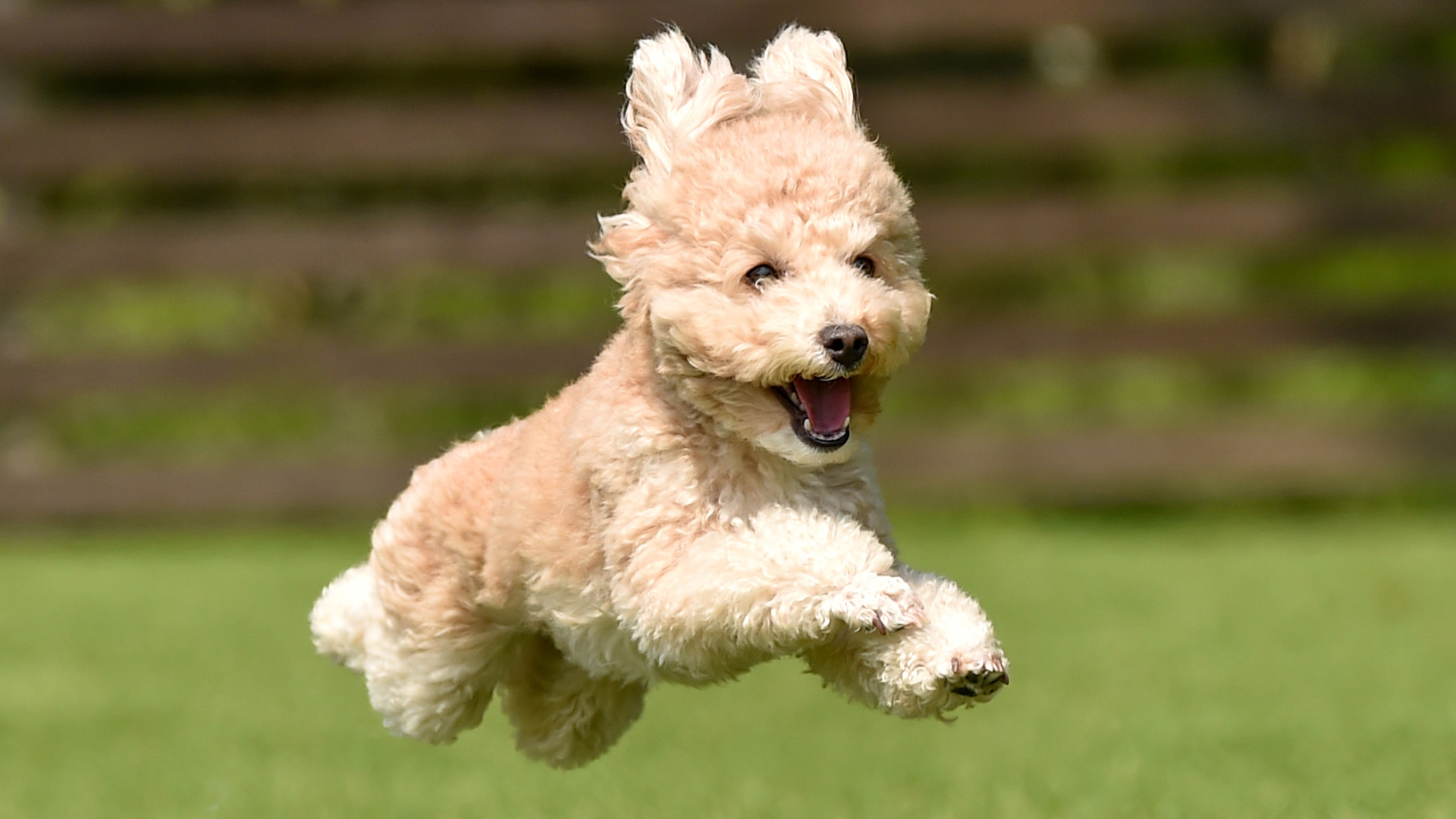Miniature Poodles—with their curly, hypoallergenic coats, sharp intellect, and playful energy—are a favorite among dog lovers, especially those in apartments or with allergy concerns. Often dismissed as “fancy lap dogs,” these pups are far more than just a pretty face: they’re descendants of water retrievers, bred to work alongside hunters, meaning they have a natural drive to move, learn, and stay engaged. This sparks a common question for owners: How long should you walk your Miniature Poodle? Unlike large breeds that need long, slow strolls or low-energy dogs that tolerate short jaunts, Miniature Poodles thrive on short, frequent walks paired with mental stimulation. When outdoor time is limited (thanks to busy schedules or bad weather), canine treadmills for sale become a game-changing solution. In this blog, we’ll break down the ideal walking duration for Miniature Poodles by age, highlight the risks of ignoring their unique needs, and explain why a canine treadmill is a must-have for their routine.
Key Takeaways
-
Adult Miniature Poodles need to walk for 20 to 30 minutes. They should do this 2 to 3 times a day to stay healthy and happy.
-
Puppies need shorter walks based on their age. They should walk for about 5 to 10 minutes for each month of age, twice a day. This helps protect their growing joints.
-
Senior Miniature Poodles should have gentle, shorter walks. They need to walk for 15 to 20 minutes, 1 to 2 times a day. This helps keep their muscles strong and healthy.
-
Not enough or too slow exercise can cause health and behavior problems. This includes obesity, stress, and anxiety in Miniature Poodles.
-
A canine treadmill is a safe option. It works in any weather and can be adjusted. This helps meet Miniature Poodles’ exercise needs and keeps them mentally active.

How Long Should You Walk a Miniature Poodle? It’s About “Short Bursts + Brain Work”
Miniature Poodles are a “high-energy, high-intelligence” breed—they don’t need hours of walking, but they do need consistent, purposeful movement that challenges both their bodies and minds. Their small size (10–15 inches tall, 10–15 pounds) means they tire quickly from long, slow walks, but they bounce back fast, craving more activity. Below is a age-specific breakdown of their walking needs:
1. Adult Miniature Poodles (1–7 Years): 20–30 Minutes Per Walk, 2–3 Times Daily
Adults are in their prime—alert, agile, and ready to play—but they don’t need marathon sessions. The sweet spot is 2–3 daily walks of 20–30 minutes each, at a brisk pace (3–3.5 mph). Key details to make walks count:
-
Add mental challenges: Miniature Poodles get bored with “mindless walking.” Pause mid-walk to practice commands (“sit,” “spin,” “find it”) or let them sniff out hidden treats—this turns a simple walk into a brain workout.
-
Mix terrain (gently): They love variety! Swap sidewalks for grassy parks or dirt trails (avoid rough gravel, which can hurt their small paws). A short climb up a gentle hill (no steep slopes!) adds a physical challenge without straining their joints.
-
Watch for “overstimulation” (not just fatigue): Unlike large breeds that slow down when tired, Miniature Poodles may get hyperactive if overwalked—pacing, barking, or jumping. If you see this, end the walk early; they’ve had enough physical activity but need calm downtime.
After walks, add 10–15 minutes of interactive play (like fetch with a small ball or tug-of-war with a soft rope)—this satisfies their need to “work” and strengthens your bond.
2. Miniature Poodle Puppies (3–12 Months): 5–10 Minutes Per Month of Age, 2 Times Daily
Puppies are tiny bundles of energy, but their growing bones and joints (especially knees and shoulders) are fragile. Overwalking can lead to patellar luxation (a common issue in small breeds) or joint pain. The golden rule is 2 daily sessions of 5–10 minutes per month of age:
-
A 3-month-old puppy: 2 walks of 15–30 minutes each (slow pace, soft terrain like grass).
-
A 6-month-old puppy: 2 walks of 30–60 minutes each (add short training breaks to keep them focused).
-
A 12-month-old puppy: 2–3 walks of 20–30 minutes each (brisker pace, but still avoid rough ground).
Puppies should never walk more than 45 minutes in one go, and you should carry them if they stop or lag. Avoid walks right after meals—their small stomachs are prone to bloat if jostled too soon.
3. Senior Miniature Poodles (8+ Years): 15–20 Minutes Per Walk, 1–2 Times Daily
Seniors slow down but still need activity to maintain muscle mass and mental sharpness. Their walks should shift to low-impact, gentle sessions:
-
1–2 daily walks of 15–20 minutes each, at a slow pace (2–2.5 mph).
-
Stick to flat, even surfaces (avoid wet grass or icy sidewalks—they’re prone to slipping).
-
Add frequent rest breaks: Let them sit for 1–2 minutes every 5–10 minutes to ease joint pressure.
Watch for signs of discomfort, like limping, stiffness when standing, or reluctance to start walking—these could mean arthritis (common in senior small breeds) and a need for vet check.
The Risks of Wrong-Sized Walks for Miniature Poodles

Walking your Miniature Poodle is very important. But getting the right time for walks is key. If you don’t, there can be serious problems. Let’s look at what can happen when walks are not the right length.
Too Long/Too Slow Walks: Hyperactivity and Stress
If you take your poodle on a long walk at a slow speed, it can cause hyperactivity and stress. Miniature Poodles are full of energy. They need to use that energy. If they don’t, they may feel restless. You might see them bouncing around or acting out. This behavior comes from having too much energy. It can lead to anxiety and even sadness.
Tip: Keep walks quick and fun. A faster pace helps your poodle use energy well. This can lower stress-related behaviors.
Too Short/No Walks: Obesity and Mental Decline
On the other hand, if you don’t walk your poodle enough, they could become overweight and lose mental sharpness. A big study found that dogs who don’t exercise enough are more likely to get Canine Cognitive Dysfunction (CCD). This is like dementia in people. It can cause memory loss and confusion.
Here are some important points about not exercising enough:
-
Not moving can make health problems worse, like obesity and sensory issues.
-
Older dogs need regular walks to keep their minds and bodies healthy.
-
Not enough exercise can cause serious health problems, including mental decline.
Boring Walks: Behavioral Issues
Even if you walk your poodle, boring walks can still cause problems. Miniature Poodles need mental challenges. Without them, they may show bad behaviors like barking too much, chewing things up, or feeling anxious when alone. These behaviors happen when they don’t get enough mental stimulation during walks.
To keep your poodle interested, think about:
-
Using puzzle toys or fun games during walks.
-
Changing your walking path to see new sights and smells.
-
Letting your poodle explore and sniff around, which can be fun for their mind.
By making sure your poodle gets the right amount of exercise and mental fun, you can help them stay healthy and happy.
Why Canine Treadmills for Sale Solve Miniature Poodle-Specific Challenges

Canine treadmills—especially compact, adjustable-speed models—are tailor-made for Miniature Poodles. They address their unique needs in ways outdoor walks often can’t, and they’re far more than just a “backup” for bad weather:
Perfect for “Short, Brisk Bursts” (No Boring Slow Paces)
Miniature Poodles thrive on quick, energetic movement—and canine treadmills let you set a brisk pace (3–3.5 mph) that matches their natural energy. Unlike outdoor walks, where you might get stuck waiting at crosswalks or slowing for other dogs, the treadmill keeps the momentum going. A 20-minute session at the right speed burns more energy than a 40-minute meandering walk, and it’s over before they get bored.
Many Miniature Poodles actually look forward to treadmill time: it’s fast, focused, and feels like a “game” rather than a chore. For owners, this means no more dragging a reluctant pup around the block.
Mental Stimulation Built In (No More Boring Walks)
Canine treadmills let you turn exercise into a brain workout—critical for Miniature Poodles. Try these tricks:
-
Command training: Teach them to “start” when you say the word, “slow” when you tap the machine, and “stop” when you hold up your hand. This keeps their mind focused on you, not just moving.
-
Visual rewards: Place a favorite toy or treat just out of reach on the treadmill’s frame—they’ll walk faster to “earn” a glance at it, turning movement into a goal-driven task.
-
Variable speed: Switch between a brisk walk and a slow jog (for adults) to keep them on their toes—this mimics the variety they’d get from a walk with stops and starts.
This mental engagement means they’re tired in both body and mind—no more post-walk zoomies or destructive behavior.
Weather-Proof and Safe (No More Skipped Days)
Miniature Poodles hate extreme weather: their curly coats get matted in rain, and their small bodies get cold fast in winter. A canine treadmill lets them exercise indoors, where it’s warm, dry, and safe. No more canceling walks because of snow, rain, or heat—consistency is key for their routine, and the treadmill ensures they never miss a session.
It also eliminates outdoor risks: no more stepping on sharp objects (like broken glass) or encountering aggressive dogs—perfect for nervous Miniature Poodles who shy away from unfamiliar pups.
Gentle on Small Joints (Great for Puppies and Seniors)
Canine treadmills are also easy on your poodle's joints. This makes them perfect for both puppies and older dogs. For young pups, controlled exercise helps them grow strong without getting hurt. For older dogs, treadmills offer a gentle way to stay active. This is important for keeping their movement good and avoiding joint problems. This soft approach lets your poodle enjoy exercise without overdoing it.
By getting a canine treadmill for sale, you can meet the special exercise needs of your Miniature Poodle while keeping them safe and happy.
Why Canine Treadmills for Sale Are a Must-Have for Miniature Poodle Owners
For Miniature Poodle owners, a canine treadmill isn’t a luxury—it’s a necessity. It solves their biggest challenges: providing short, brisk exercise that matches their energy, fitting into small living spaces, keeping their minds engaged, and protecting their tiny joints. Unlike generic exercise tools, it’s tailored to their size and intelligence, making it a tool they’ll actually enjoy using.
It also makes life easier for owners: no more rearranging schedules to fit in walks, no more stress about bad weather, and no more dealing with post-walk hyperactivity. It’s a tool that grows with your pup—from a gentle session for puppies to a brisk workout for adults, then a slow, joint-friendly walk for seniors.

How long should you walk your Miniature Poodle? It depends on their age—adults need 20–30 minutes per walk, puppies need age-appropriate short sessions, and seniors need 15–20 minutes. But the real key is quality over quantity: walks should be brisk, mentally stimulating, and tailored to their small size. Canine treadmills for sale deliver exactly that, offering a safe, convenient way to keep your Miniature Poodle healthy and happy.
For anyone who loves their Miniature Poodle, a treadmill is an investment in their well-being. It lets you honor their working heritage, keep their mind sharp, and ensure they live a long, active life—even in small spaces. After all, a well-exercised Miniature Poodle is a calm, content Miniature Poodle—and there’s nothing better than seeing your curly-coated companion relax after a fun, purposeful workout, whether it’s outdoors or on a treadmill.









0 Comments